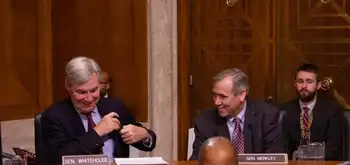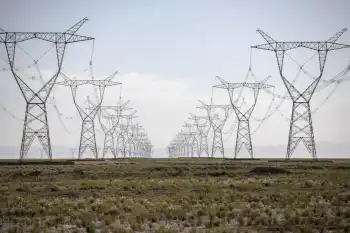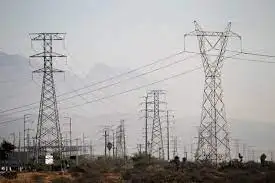FERC approves scheduling between NYISO and ISO New England
By The Federal Energy Regulatory Commission FERC
NFPA 70e Training - Arc Flash
Our customized live online or in‑person group training can be delivered to your staff at your location.

- Live Online
- 6 hours Instructor-led
- Group Training Available
FERC's approval of Coordinated Transaction Scheduling CTS will enable ISO New England and the NYISO to make more efficient use of the transmission lines that connect the two regions. Currently, rules governing wholesale energy transactions between New York and New England can create market inefficiencies.
The implementation of CTS will improve the ability of market participants to access the lowest-cost source of power within the two regions and lower the combined cost of operating the power systems in New York and New England.
Enhancements include increasing the frequency of scheduling energy transactions over the transmission network between regions, implementing software changes to enable the two ISOs to coordinate selection of the most economic transactions and eliminating several fees that impede efficient trade between regions.
These changes have the potential to save millions of dollars annually, enabling the two ISOs to displace higher-cost generation with lower-cost generation, wherever the lower-cost supply is located. A study of external transactions from 2008 to 2010 showed that CTS could result in annual savings in the range of $60 million in New England and $66 million in New York.
"ISO New England and the New York ISO have a longstanding history of cooperation, and FERC's recent approval is due to the diligent work on CTS by staff from both ISOs, as well as market participants on both sides of the border," said Gordon van Welie, president and CEO of ISO New England Inc. "Improving the ability for market participants to trade between regions not only increases competition, but also improves the utilization of the interconnections. The anticipated result will be lower wholesale costs."
In the past year, New England and New York market participants successfully guided the CTS proposal through each regionÂ’s stakeholder process.
"The NYISO has worked very closely with ISO New England and other neighboring electric systems as part of ongoing efforts to optimize resources, improve energy transaction scheduling and mend market seams between the regionÂ’s power systems," said Stephen G. Whitley, president and CEO of the NYISO. "FERC's approval of these new market rules is another important step in the Broader Regional Markets initiative, and the resulting improvements in scheduling efficiency and system flexibility will benefit consumers in both regions."
Both the NYISO and ISO New England will embark on a major initiative to update the software for scheduling energy transactions between regions.











